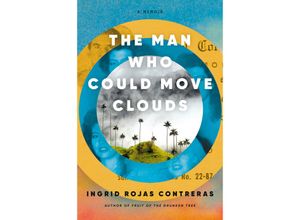PULITZER PRIZE FINALIST NATIONAL BOOK AWARD FINALIST From the bestselling author of Fruit of
the Drunken Tree comes a dazzling kaleidoscopic memoir reclaiming her family's otherworldly
legacy. A BEST BOOK OF THE YEAR: TIME NPR VULTURE PEOPLE BOSTON GLOBE VANITY FAIR ESQUIRE
& MORE Rojas Contreras reacquaints herself with her family s past weaving their stories with
personal narrative unraveling legacies of violence machismo and colonialism In the process
she has written a spellbinding and genre-defying ancestral history. New York Times Book Review
For Ingrid Rojas Contreras magic runs in the family. Raised amid the political violence of
1980s and '90s Colombia in a house bustling with her mother s fortune-telling clients she was
a hard child to surprise. Her maternal grandfather Nono was a renowned curandero a community
healer gifted with what the family called the secrets : the power to talk to the dead tell the
future treat the sick and move the clouds. And as the first woman to inherit the secrets
Rojas Contreras mother was just as powerful. Mami delighted in her ability to appear in two
places at once and she could cast out even the most persistent spirits with nothing more than
a glass of water. This legacy had always felt like it belonged to her mother and grandfather
until while living in the U.S. in her twenties Rojas Contreras suffered a head injury that
left her with amnesia. As she regained partial memory her family was excited to tell her that
this had happened before: Decades ago Mami had taken a fall that left her with amnesia too.
And when she recovered she had gained access to the secrets. In 2012 spurred by a shared
dream among Mami and her sisters and her own powerful urge to relearn her family history in
the aftermath of her memory loss Rojas Contreras joins her mother on a journey to Colombia to
disinter Nono s remains. With Mami as her unpredictable stubborn and often amusing guide
Rojas Contreras traces her lineage back to her Indigenous and Spanish roots uncovering the
violent and rigid colonial narrative that would eventually break her mestizo family into two
camps: those who believe the secrets are a gift and those who are convinced they are a curse.
Interweaving family stories more enchanting than those in any novel resurrected Colombian
history and her own deeply personal reckonings with the bounds of reality Rojas Contreras
writes her way through the incomprehensible and into her inheritance. The result is a luminous
testament to the power of storytelling as a healing art and an invitation to embrace the
extraordinary.



